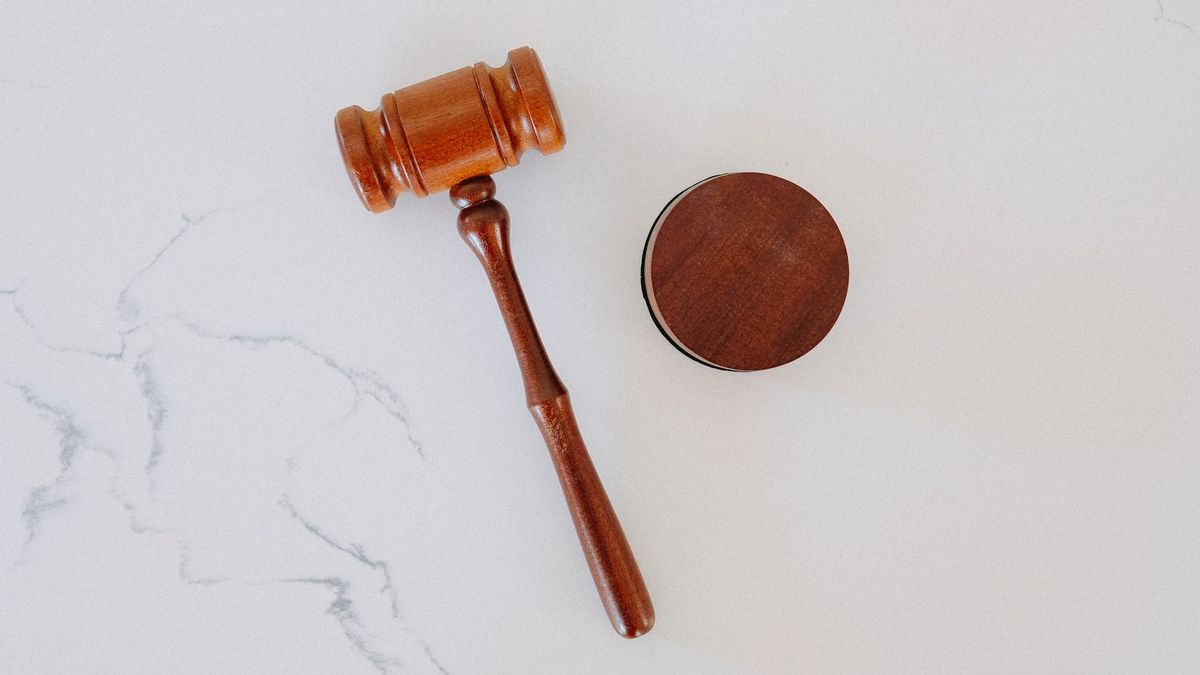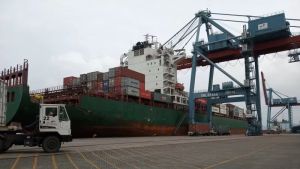JAKARTA - Law Number 37 of 2004 concerning Bankruptcy and Postponement of Debt Payment Obligations (PKPU) is currently 19 years old and needs to be strengthened in order to follow increasingly complex dynamics and economic developments.
As one of the emerging markets in Asia, Indonesia has economic dynamics that requires certainty and legal strengthening to ensure that the climate is trying to remain attractive to foreign investors, one of which is in terms of solving debt problems between debtors and creditors.
Meanwhile, so far business actors in Indonesia have used Law no. 37/2004 on Bankruptcy and PKPU as a reference for resolving business disputes in the form of debts. However, along with the increasingly complex business ecosystem and exceeding state borders, the law has become less capable of providing legal certainty for creditors and debtors or divided parties.
Managing Partner Dwinanto Strategic Legal Consultant (DSLC), Rizky Dwinanto, sees the use of Law no. 37/2004 has shifted from its main goal, as a means to settle debts that are fair, fast, transparent and effective.
Rizky assessed that the presence of Law no. 37/2004 should be aimed at protecting debtors who experience problems in doing business or doing business.
According to him, through the law, debtors who experience difficulties in doing business so that they are constrained in fulfilling their debt payment obligations to creditors, can apply for a PKPU scheme.
"Or maybe if a debtor who has really had a lot of difficulty in doing business and paying his debt, he can use the bankruptcy application mechanism. So the focus is on protecting debtors," he said earlier this week.
However, according to Rizky, currently Law no. 37/2004 is actually used as a legal tool or scheme to collect debts by creditors to debtors. As a result, the majority of PKPU and bankruptcy applications in Indonesia actually come from creditors more.
"If you depart from the current phenomenon, when the 2-month debt has not been paid, the PKPU has applied for it, then the Rp100 million debt has not been paid, has been submitted by the PKPU. This has finally become a moral hazard. We should first look at the condition of the debtor company and the current economic conditions. So don't be small in PKPU or bankrupt," he added.
For this reason, he considered the importance of revising Law no. 37/2004 so that it is in accordance with the times and current economic conditions.
Meanwhile, President Director of AJ Capital Geoffrey D. Simms stated that in an increasingly complex and connected economic system (exceeding national boundaries), the law must be able to provide a sense of justice and protection that is the same, both for creditors and debtors.
Creditures, debtors, and courts must all participate and have their respective roles in the bankruptcy process and PKPU. Commercial courts will certainly strive to find a fair settlement for all parties. Commercial courts must also strive to keep companies [debtors] operating and provide protection to all shareholders. That is the spirit of modern law," he said, Monday, October 23.
Simms stated that the law must be used as a means to restructure a healthy business by ensuring the rights of creditors are protected while helping to overcome the problems of companies (debtors) who are having difficulty getting back to health and being able to settle their obligations.
Strong and consistent bankruptcy law enforcement, he said, could help minimize the risk of misuse of the bankruptcy process, which could have a negative impact on shareholders and creditors.
Simms reminded that every bankruptcy case and PKPU have their own uniqueness, where there is a different situation in each case. Commercial courts must of course consider the special facts of the case when making decisions.
This is not only about protecting the economic interests of companies, debtors. But also protecting legal rights from creditors. How do creditors know their rights will be protected if for example there are debtors who don't want to pay back. That happened, right? So it must be seen from two sides.
Simms said the uncertainty of a fair settlement in bankruptcy decisions is feared to increase the risk perception in lending. Financial institutions, he said, may view loans to individuals or companies in Indonesia as more risky if they are not sure about the legal procedures and protection that will be provided in the bankruptcy process.
Therefore, to compensate for higher risk, they may offer a higher rate of interest. Thus the cost of borrowing will rise and the economy as a whole will get worse, "he said.
In 2021, Coordinating Minister for the Economy Airlangga Hartarto briefly highlighted the increase in the number of legal cases related to PKPU and bankruptcy regulations. This was conveyed in his speech at the National Working Meeting of the Indonesian Employers' Association (Apindo) on August 24, 2021.
Meanwhile, in 2019, the number of bankruptcy applications and PKPU was recorded at only 435 submissions. However, the number of applications increased drastically to 635 applications in 2020 and reached its peak in 2021 with 726 applications. Meanwhile, in 2022, application submissions began to fall to 625 and in 2023 (up to October 14, 2023) to 563 applications.
Airlangga even sees moral hazard in the submission of PKPU and bankruptcy in Indonesia in recent years. This is due to the easy requirements for creditors to ask their debtors to submit PKPU.
At that time, Airlangga also stated that the government would impose a moratorium on applying PKPU and bankruptcy in accordance with the applicable law. The reason is that the law has not only been used by debtors to restructure their debts, but instead is used by creditors as part of their corporate actions.
Prior to the government's initiative, a discourse to strengthen Law no. 37/2004 had appeared in 2017. At that time, the Working Group for the Revision of Law No. 37/2004 had compiled an academic manuscript which would be used as a reference for discussions between the government and the DPR RI.
However, until now the discussion regarding the revision of Law no. 37/2004 never ends, both at the government and DPR RI levels.
Meanwhile, in the World Bank EoDB report which was last released in 2020, Indonesia's ranking on the topic of Resolving Insolvency is in the 38th position in the world. When compared to fellow countries in Southeast Asia, Indonesia is below Thailand, which is ranked 24th and Singapore is ranked 27.
On the other hand, the revision of Law no. 37/2004 also needs to be done so that the climate of business in Indonesia becomes more attractive and can compete with other countries. Moreover, regulations in bankruptcy settlement are one of the indicators of assessment from the World Bank in the Ease of Doing Business (EoDB) index.
The English, Chinese, Japanese, Arabic, and French versions are automatically generated by the AI. So there may still be inaccuracies in translating, please always see Indonesian as our main language. (system supported by DigitalSiber.id)













